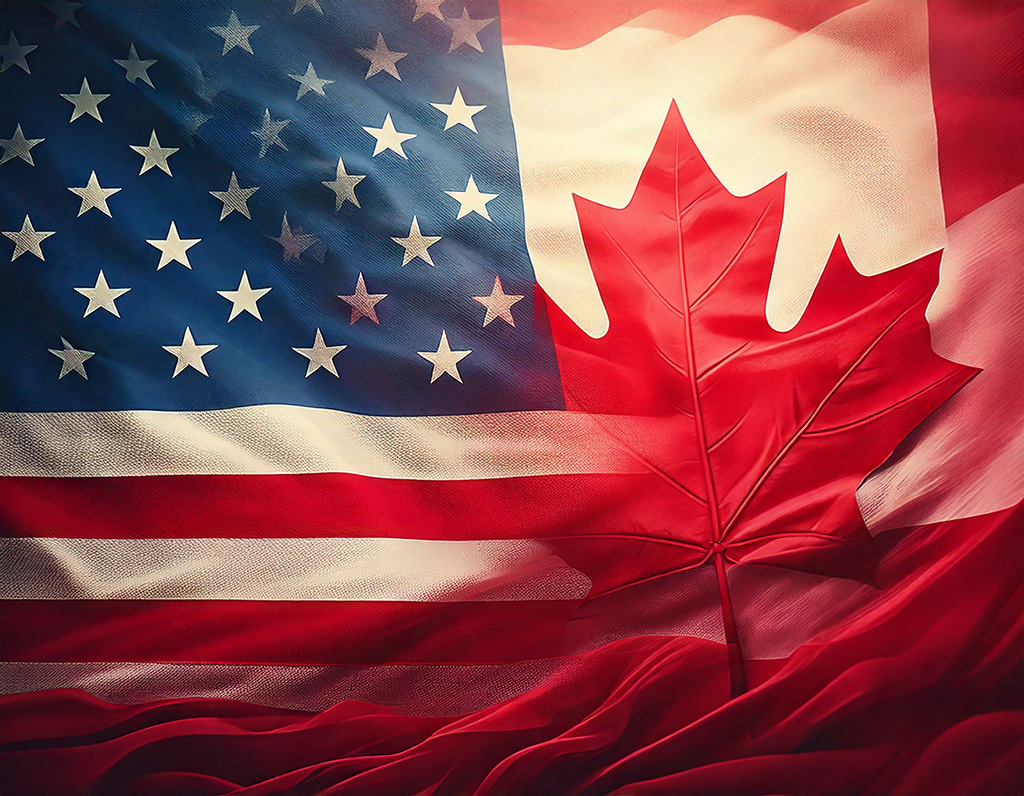The chill of January cuts deep, but the winds of justice blow colder. Across the border, beneath the veneer of our friendly northern neighbor, lies a storm of accusations that demands attention. Evidence is mounting that the Government of Canada may have played a role in undermining the sanctity of the 2020 United States presidential election. At the heart of this controversy lies Dominion Voting Systems, a company with roots in Canada and operations spanning continents, tied to allegations of manipulation in collusion with Serbia. This isn’t just a story of machines; it’s a story of democracy under siege.
Dominion and the Toronto Connection
The Dominion Voting Systems name first emerged in whispers and then in thunderous accusations. Based in Toronto, the company’s software and hardware were used across numerous U.S. states during the contentious 2020 election. Reports have surfaced, alleging that the Toronto office collaborated with foreign actors, including Serbian operatives, to skew election results.
The evidence is as intricate as it is unsettling. Leaked documents and digital trails suggest coordinated efforts that violated Executive Order 13848, issued in 2018 to counteract foreign interference in U.S. elections. The order grants sweeping powers to identify and sanction foreign governments and individuals attempting to subvert American democracy. If proven, Canada’s involvement could shake the foundation of cross-border trust and tarnish its image as a steadfast ally.
A Network of Deceit
Investigators claim that Dominion’s Toronto office was not merely an operational hub but a nerve center for interference. Connections to Serbia are particularly damning. Sources allege that Serbian contractors developed algorithms and software patches designed to manipulate vote counts. These digital fingerprints were reportedly traced back to key battleground states, where razor-thin margins determined the outcome.
More troubling is the suggestion that Canadian officials turned a blind eye, or worse, provided tacit support. Intelligence intercepts hint at high-level meetings discussing “neutralizing” the Trump presidency through technological means. If true, these actions not only breach U.S. sovereignty but also amount to a grave betrayal of international norms.
The Long Arm of EO 13848

Executive Order 13848 looms large in this saga. Designed as a deterrent against election interference, it requires the Director of National Intelligence to assess and report foreign meddling within 45 days of a federal election. The order authorizes economic sanctions, asset freezes, and travel bans against foreign actors found guilty of interference.
While initial reports from the DNI in late 2020 were inconclusive, subsequent revelations have reignited calls for accountability. Legal experts argue that Canada’s alleged actions—if substantiated—fall squarely under the purview of EO 13848. The implications extend beyond penalties; they demand a rethinking of diplomatic ties and trade relations.
Canada’s Silence Speaks Volumes
Ottawa’s response has been muted. Official statements dismiss the accusations as baseless conspiracy theories, but silence on specific allegations has fueled suspicion. Prime Minister Justin Trudeau, already embattled by domestic scandals, faces mounting pressure to address the claims head-on. Yet, his government’s reluctance to cooperate with U.S. investigators raises questions about what lies beneath.
Meanwhile, the Canadian public watches uneasily. Polls reveal a growing unease with the idea that their government could have meddled in their neighbor’s most sacred democratic process. The specter of such involvement casts a shadow over Canada’s reputation as a champion of fairness and democracy.
America’s Next Steps
In case you were wondering: the corporation of Canada is owned by the United States Corporation. So all this talk of the 51st State has already been the case for decades. President Trump is likely aware of this. pic.twitter.com/0beGDWZyTO
— Qmum (@Nancy023922191) December 31, 2024
For the United States, the path forward is fraught with complexity. On one hand, the integrity of the 2020 election must be defended, not merely for the sake of history but for the future of democracy itself. On the other hand, pursuing justice risks straining relations with a key ally.
The Department of Justice and intelligence agencies are reportedly expanding their investigations, with subpoenas issued to Dominion executives and Canadian officials. Congressional hearings are expected to delve into the matter, shining a spotlight on the Toronto connection and the alleged Serbian collaboration. Yet, justice demands more than uncovering the truth; it requires consequences.
A Cautionary Tale for Democracy
The 2020 election was a flashpoint, but it’s also a warning. As technology increasingly entwines with democracy, the potential for manipulation grows. Dominion Voting Systems and its alleged misuse serve as a stark reminder that even the most trusted processes can be vulnerable.
For Americans, this is a call to vigilance. Safeguarding elections is not just a government responsibility but a collective endeavor. From secure voting systems to transparent oversight, every measure must be taken to protect the integrity of the vote.
The Broader Implications
If Canada’s involvement is confirmed, the fallout will ripple far and wide. Diplomatic relations could deteriorate, trade agreements may be reevaluated, and Canada’s global standing could suffer irreparable harm. For the United States, the revelation would reinforce the need to scrutinize even its closest allies.
Yet, this is also an opportunity for renewal. By confronting the issue head-on, both nations can reaffirm their commitment to democratic principles. Transparency and accountability must guide the path forward, ensuring that such breaches never happen again.
The Quest for Justice Continues
The road to justice is seldom smooth, and this journey is no exception. As investigators piece together the puzzle, the world watches, waiting for answers. America’s pursuit of truth is not merely a matter of politics; it’s a testament to the enduring power of democracy.
The winds of January blow cold, but the fire of justice burns hot. From Toronto to Washington, the echoes of 2020 remind us that the price of liberty is eternal vigilance. In the end, the truth will out, and democracy will endure, stronger for the trials it has faced.

Leave a Reply